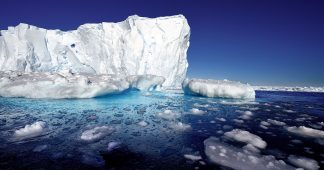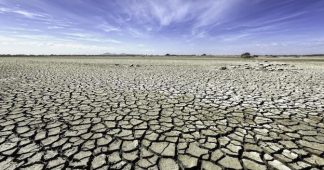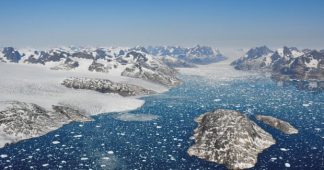Further delays to curb greenhouse gas emissions will mean humanity misses its ‘brief and rapidly closing window’ to secure a liveable and sustainable future
THE United Nations issued its bleakest warning yet on climate change today, saying the worst effects of global warming, which has already destroyed lives, livelihoods, homes and natural habitats, is yet to come.
Some of its effects are already irreversible, as nature and humans are pushed to the limits of their ability to adapt to rising temperatures, the leading scientists of the Geneva-based arm of the UN, the Intergovernmental Panel on Climate Change (IPCC) said.
The panel issued a dire warning over the mounting threat that climate change poses to physical and mental health, cities and coastal communities, food and water supplies and wildlife globally.
Any further delays to curb greenhouse gas emissions and adapt to already inevitable climate change would mean humanity will miss a “brief and rapidly closing window” to secure a liveable and sustainable future, it said.
UN secretary-general Antonio Guterres described the panel’s report as “an atlas of human suffering and a damning indictment of failed climate leadership,” warning that nearly half of humanity is in the climate danger zone.
The assessment is the second in a series of three reports from the IPCC into the latest climate science. It finds that climate change caused by humans has led to increasing heat and heatwaves, rising sea levels, floods, wild fires and drought, causing death, food and water scarcity and migration.
Health impacts are being felt worldwide: people have died and suffered illness from extreme heat, diseases have emerged in new areas, there has been an increase in cholera and worsening mental health with trauma inflicted by floods, storms and loss of livelihoods.
The report also warns of the closeness of irreversible “tipping points” where the effects of melting of ice sheets in Antarctica, thawing of permanently frozen Arctic areas or the loss of Amazon rainforest become unstoppable.
The consequences of global warming, which has reached 1.1°C above pre-industrial levels already, are not felt evenly around the world, with countries in sub-Saharan Africa and small island states among the most at risk.
But in the West, people face coastal and inland flooding, heat extremes, damage to habitats, water scarcity and loss of crop production as well as knock-on inflationary effects.
The report, which comes just over 100 days after world leaders agreed new efforts to limit warming and to deliver finance for adaptation at the Cop26 climate summit in Glasgow, calls for an accelerated effort to adapt to climate change.
Funding to protect the most vulnerable is also needed, it adds, with up 3.6 billion people in the world’s poorest countries at risk.
Highlighting the “devastating warning,” Labour’s shadow climate secretary Ed Miliband said: “Scientists are painting a vivid picture of the nightmare ahead if we do not act now.
“Their message can no longer be ignored: business as usual means catastrophe in a rapidly warming world.
“But the report is also clear that our destiny remains in our own hands and that there is still time to act — if we do so urgently.
“Anything less than transformative action is a betrayal of our planet and of future generations.”
The Scottish Greens climate spokesman Mark Ruskell said: “We are running out of time. This report must act as a wake-up call to all governments that climate action simply cannot wait.”
Global Justice Now campaigner Daniel Willis urged the establishment of climate reparations to help protect those in the global south who are “highly vulnerable to a crisis to which they have contributed comparatively little.
“Cancelling debts, dismantling the fossil fuel industry, rapidly accelerating emissions reductions targets and removing intellectual property on green technologies can all contribute to a just response,” he said.
Published at morningstaronline.co.uk
We remind our readers that publication of articles on our site does not mean that we agree with what is written. Our policy is to publish anything which we consider of interest, so as to assist our readers in forming their opinions. Sometimes we even publish articles with which we totally disagree, since we believe it is important for our readers to be informed on as wide a spectrum of views as possible.











